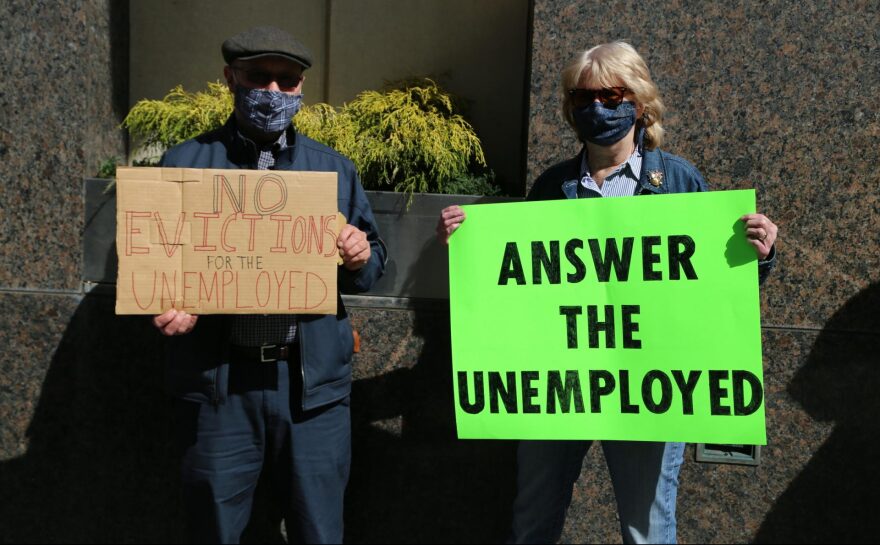Republicans in Pennsylvania’s GOP-controlled Legislature are advancing legislation to reinstate work-search requirements for people claiming unemployment benefits, with one survey showing that workers aren't taking open jobs at a record rate.
The bill cleared the House Labor and Industry Committee on a party-line vote Tuesday.
Lawmakers suspended the work-search requirement through 2020 amid the pandemic last year, and Gov. Tom Wolf, a Democrat, extended the waiver administratively into this year. The bill would reinstate the requirement starting June 8.
Wolf’s office did not say whether he supports or opposes the bill, only that he would review it should it pass the Legislature.
Wolf’s office also did not say whether he plans to reinstate the work-search requirement, even as his administration prepares to drop his remaining pandemic restrictions on gatherings and business capacity starting on Memorial Day.
The bill's sponsor, Labor and Industry Committee Chairman Jim Cox, R-Berks, contends that employers are having trouble finding workers, and that they often blame the additional $300 per week in federal unemployment benefits during the pandemic and the lack of a work-search requirement.
The extra $300 weekly is scheduled to last through the week ending Sept. 4. Pennsylvania reported about 255,000 initial and continued unemployment compensation claims last week.
Still, Wolf’s office said unemployment benefits only provide a portion of a worker’s lost wages, and countered that certain industries may have difficulty hiring workers because, for instance, some parents have children learning at home or some people are waiting for a second vaccine dose before returning to work.
As more people become vaccinated, the pool of workers can be expected to grow, his office said. Still, some workers may have chosen to change careers or get new skills during the pandemic, Wolf’s office said.
The National Federation of Independent Business reported that it's March survey of small business owners found that 42% reported job openings that they could not fill, a record high that was 20 points higher than the 48-year historical average of 22%.
“It's a common problem, it's a national problem, not in only our state, but I think our state has exacerbated the problem by not reinstating the work-search requirement and with the federal government now giving more money to people collecting unemployment, there’s not a huge incentive for them to go back,” said Greg Moreland, executive director of Pennsylvania's NFIB chapter.
Wolf's office also suggested that employers need to pay more.
The Democrat wants lawmakers to raise Pennsylvania's minimum wage to $12 an hour, up from the federal minimum of $7.25 an hour.
Employers paying “poverty wages” may have challenges attracting workers, Wolf’s office said. The Republican-controlled Legislature has rejected Wolf’s overtures to raise the state’s minimum wage since he took office in 2015.




